第十三届“板桥杯”(Bambridge)青年翻译竞赛通知 截止日期:2021年4月15日 “板桥杯”青年翻译竞赛自2008年至今已成功举办了十二届,对推动翻译理论与实践发展,激发翻译爱好者热情,发现和培养翻译人才发挥了积极作用。竞赛原文主要选取军事、外交、政治和国际关系等方面的文章,此项赛事由江苏省翻译协会负责主办,国防科技大学国际关系学院具体承办。比赛不收取任何参赛费用。 主办:江苏省翻译协会 承办:国防科技大学国际关系学院 第十三届“板桥杯”(Bambridge)青年翻译竞赛分笔译和口译两项子赛事。具体参赛规则如下: 第一部分笔译比赛 竞赛内容: 军事、外交、政治和国际关系等方面的文章,形式为英译汉。 笔译参赛原文: 见下文。 参赛对象: 1.军队院校在校青年学员或青年教员。 2.江苏地区高校教师或学生。 3.江苏地区热爱翻译的其他人员。 4.年龄40周岁以下。 译文要求: 1.参赛译文需用电脑A4纸宋体5号打印。译文正文内请勿书写译者姓名或透露任何有关译者的个人信息。 2.参赛译文请将报名表作为封面,写清参赛者的姓名、性别、出生年月、工作(学习)单位、联系电话和地址。 3.同时将译文电子稿发送至竞赛专用邮箱:guoqiong@nudt.edu.cn,主题以姓名+译文题名标注。 4.参赛译文须独立完成,杜绝抄袭现象。一经发现,将取消参赛资格。 奖项设置: 笔译比赛设特等奖四名,一等奖十二名,二等奖二十名,三等奖若干名。 颁奖典礼: 本届竞赛颁奖典礼将于2021年6月中旬(具体时间待通知)在国防科技大学国际关系学院教学楼军事外交模拟中心举行,地方人员的笔译获奖证书将通过邮寄方式发放,军队院校获奖人员将受邀参加颁奖典礼。 截止日期: 2021年4月15日(参赛译文投递截止日期以寄出邮戳为准)。 投寄(挂号)地址: 南京市雨花区板桥街道国际关系学院国际军事合作教研室 郭琼(老师)收 邮编:210039 (请在信封上注明:“参赛译文”字样,只接受邮局投递和EMS,其它形式的快递不予受理。) 联系人: 郭琼老师:13814003496 朱蓓老师:18502531586 第二部分口译比赛 竞赛内容: 本届口译竞赛形式为对话口译(中英交替传译),参赛对象以邀请赛方式进行。 参赛对象: 1. 军队院校在校青年学员(年龄为40周岁以下)。 2. 受邀参加的江苏地区高校青年学生(年龄为40周岁以下),以邀请函为准。 报名要求: 1. 每所院校限报两名参赛选手,各院校负责组织本校的初选工作。 2. 拟报名参赛的选手需要在截止日期前将参赛报名表寄回,写清参赛者的姓名、性别、出生年月、工作(学习)单位、联系电话和地址。 奖项设置: 口译比赛设特等奖二名,一等奖四名,二等奖六名,三等奖若干名,并设优秀指导教师奖。 比赛时间及颁奖典礼: 本届口译竞赛将于2021年6月中旬(具体时间待通知)颁奖典礼之前在国防科技大学国际关系学院教学楼军事外交模拟中心举行,比赛结束后当场颁奖。 报名截止日期: 2021年4月15日(投递截止日期以寄出邮戳为准)。 投寄(挂号)地址: 南京市雨花区板桥街道国际关系学院国际军事合作教研室 武媛媛(老师)收 邮编:210039 (请在信封上注明:“口译报名”字样,只接受邮局投递和EMS,其它形式的快递不予受理。) 联系人: 武媛媛老师:13382054161 朱蓓老师:18502531586 笔译竞赛原文 Counseling in the Operational Domain: A Vital Component to Platoon Leadership Kirby Dennis Leader development is achieved through mutually supporting efforts across three domains — the institutional, operational, and individual. While it is generally agreed that no domain is more or less important than the others, performance and developmental counseling is most prominent in the operational domain — and it must remain so. More pointedly, I contend that developmental counseling in the operational domain is the most important and meaningful form of leader development. With this in mind, I offer the following advice to platoon leaders — a cohort that is critical to promoting a culture of counseling within our formations. Don’t Treat Counseling as a Negative Interaction Often times, we immediately think in negative terms when we hear the word "counseling." While an individual's past performance failures and weaknesses are certainly fair game for any professional discussion, the tone of counseling sessions should generally be positive and centered around future successes. With this in mind, an effective counseling technique is to speak to your audience about their areas of weakness through the lens of potential. The manner in how you communicate these deficiencies is critical though, and effective counselors must learn how to speak to areas of weakness in a way that motivates their audience to embrace the feedback and set out to make improvement. Easier said than done, right? Not really! If you are a company commander, you have insight on what makes a successful first sergeant, so use this as counseling material for your platoon sergeants — who are generally aspiring to serve at the next level. Similarly, as a platoon leader, you have firsthand knowledge on what makes a platoon sergeant effective in his duties, so provide this to your squad leaders during counseling sessions — who are generally trying to succeed and be future platoon sergeants themselves. To be sure, each counseling session will be tailored to a specific subordinate's performance and potential, and a variety of techniques will undoubtedly be employed. However, a leader's ability to link performance to potential and speak in terms that motivate are important skills that will enhance the counseling experience for all involved. Adopt a Training and Combat Mentality to Counseling As a young platoon leader, I learned that in order to effectively maneuver my platoon during training and in combat, I had to clearly communicate to my squad leaders in both the planning and execution phases of an operation. As a battalion commander 16 years later, this remains the case — as my platoon leaders inherently understood the value of forging strong tactical relationships with their squad leaders. After all, the squad leader is charged with ensuring the success of the breach, support by fire, and assault — so clear communication and shared understanding is critically important. At the same time, however, many of my platoon leaders did not necessarily view their daily (or non-tactical) relationships through the same lens. In short, platoon leaders should view their "counseling relationship" with their squad leaders in the same manner as their "tactical relationship" — just without the radio. If this mindset is adopted, I believe that the tenets of mission command — clear communication, shared understanding, and mutual trust — can be realized in all environments. Consider Your Philosophy and Make Counseling a Battle-Rhythm Event Meetings, field training, and physical training (PT) dominate our outlook calendars, not to mention the dozens of other events that demand time and attention. If executed properly, you will likely get a calendar reminder for a counseling session at least once a week. Signore argues that counseling should be executed on payday activities, which is one technique to ensure counseling is executed through a deliberate battle-rhythm event. Regardless of the eventual schedule that is adopted, a platoon leader should ask a few questions regarding his counseling philosophy. Do I counsel team leaders in my platoon? If so, how often? How will my formal counseling sessions for squad leaders differ from my daily interactions so that it has the most meaning and impact? I could go on and on, but the simple point is that thought must be given to your counseling philosophy and “battle rhythm.” If one does the math, platoon leaders likely have 8 to 10 NCOs in their platoon to counsel on a monthly or quarterly basis. While effective counseling should not be defined by a specific length of time, I have personally found that it takes at least 90 to 120 minutes per counseling session to achieve a level of dialogue that is meaningful to both the counselor and the counseled. With these conservative estimates in mind, platoon leaders should plan to devote 9 to 12 hours each month in some form of counseling environment with their subordinate NCOs. If we devoted this much time to any other event in our professional lives, we would most assuredly plan and resource it properly. In the end, counseling is one of the most important things we do as professionals — just like live-fire exercises and PT. Ask Subordinates for Feedback on Your Performance GEN Colin Powell once said,"There are no secrets to success. It is the result of preparation, hard work, and learning from failure." As leaders and counselors, we should solicit subordinate feedback at times to become more effective, and as GEN Powell noted, learn from our own failures. Generally speaking, professional feedback is delivered through a top-down approach, but we shouldn't constrain the forms or sources of feedback we need to receive. At the end of a counseling session, I encourage leaders to solicit feedback from subordinates on their own performance — a simple technique that invests subordinates in the conversation and demonstrates a level of professional trust between the two parties. Moreover, asking subordinates to verbally communicate professional shortcomings to their superior is a herculean request-- but make no mistake, it is a form of development that the subordinate will benefit from. Professionally communicating areas of weakness underpins the learning culture that makes the Army profession so strong, which is most evident in the Army's after action review (AAR) process. Platoon leaders who have executed a Combat Training Center (CTC) rotation certainly understand this, as the AAR is the centerpiece to every unit's CTC experience. So if we rightfully take AARs so seriously as it pertains to organizational performance, shouldn't we do the same for our own personal performance? Counseling is the foundational event for professional development — and it must be delivered through a program that aims to not only identify weakness and deficiency but also pinpoint strengths and positive leader attributes. Effective counseling is a skill that requires practice and repetition, much like learning doctrine or improving physical fitness or public speaking. Indeed, an effective counselor can positively impact generations of Soldiers, and as such, is an aspect of our professional lives that demands our attention and energy. |
创优评审系统严格实行“依靠专家,发扬民主,择优支持,公正合理”的评审原则,
支持多种模式评审方式,支持不同行业评审环境。
创优评审系统为B/S架构,使用单位使用Web浏览器即可实现评委集中评委或网络评审,无需发布到外网或下载安装包,安全,可靠!
创优评审系统支持PC端和Pad端的评审,实现灵活和可自定义的评审!
详细请联系:021-64391578或邮件service@webxun.com
评审系统软件始终以满足顾客为己任,成就评审系统第一品牌。

方向键左右键控制评审翻页,下键投票,上键取消投票,操作简易快。

作品上传格式支持jpg、gif图片文件,MP4、Flv视频文件,MP3音频文件,pdf文档,网页和flash动画。

技术是基础,服务是保障。我们能做的不仅仅如此,我们致力于让每一位客户都能通过运营网站产生价值。

从售前到售后,均由专人一对一提供技术支持,及时为客户解决问题。指导客户更好的管理网站,已达更好的展示。

众联杯·双创大赛是在上海市经济和信息化委员会的指导下,由上海市信息服务产业基地联盟主办的,以“互联网+”为主题的全国性创新创业大赛。

全国大学生广告艺术大赛(大广赛)是中国最大的高校传播平台,是由教育高等教育司主办、教育部高等学校新闻学学科教学指导委员会组织、中国传媒大学与中国高等教育学会广告教育专业委员会共同承办的唯一全国性高校设计作品大赛。
自大广赛开办之处,上海迅速网络即协助大广赛的作品申报和专家评审,作品的格式涵盖了视频、微电影、动画、广播、文案类、平面类等多种多样的格式文件,同时也区分了超过10个的命题类型;2020年第12届大广赛共收到53多万组作品,比去年同期增长13万余组,其中3万多组入围全国总评审。

为贯彻落实国务院办公厅印发《关于深化高等学校创新创业教育改革的实施意见》(国办发[2015]36号)精神,进一步推进全国高校大学生创新创业教育,推动高校创新创业实践教育的改革与创新,为全国生命科学相关专业大学生搭建创新创业活动交流平台,教育部高等学校生物技术、生物工程类专业教学指导委员会,教育部高等学校食品科学与工程类专业教学指导委员会,高等学校国家级实验教学示范中心联席会,《高校生物学教学研究》编辑部联合举办“全国大学生生命科学创新创业大赛”。竞赛每年一届,于2016年首次举办。
第四届全国大学生生命科学创新创业大赛在吉林大学举行。本届大赛共计收到参赛作品3987项,经过资格审查、初赛网评和复赛网评,评选出了入围公开决赛项目及二、三等奖项目,共计1659项。

中国大学生广告艺术节是目前国内唯一由国家工商总局批准、中国广告协会主办的大学生广告艺术大型活动,内容涵盖学术研讨、创意大赛、娱乐评选以及人才交流等方面,充分利用各方社会资源,搭建高端选拔平台,注入新鲜娱乐元素,在同类活动中独占鳌头。

“中国——东盟大学生短片节”是由中国高等院校影视学会、广西电视台、广西艺术学院共同主办,广西艺术学院国际交流处、广西艺术学院影视与传媒学院、中国高等院校影视学会微电影创研中心(广西艺术学院)承办,中国高等院校影视学会微电影专业委员会协办的面向中国和东盟国家大学生的国际短片节。
“中国——东盟大学生短片节”的宗旨是鼓励中国和东盟国家大学生创作优秀短片,发掘和培养影视短片艺术创作人才,促进中国——东盟的影视艺术教育发展,搭建中国——东盟大学生影视文化艺术交流与合作的国际平台。

让青年人能够在互联网新经济浪潮中获得更多的机会,培养新时代青年创业的正能量,由中青在线主办,新华数科信息科技集团联合主办,中国百货商业协会支持的“青创杯”数字经济与文化创新大赛即将开始。该活动旨在发掘和培育高水平、高层次、高素质的青年创业人才团队,营造自媒体创新创业氛围,推动电商产业转型升级、提质增值,培育经济新增长点,促进经济发展与乡村振兴。

2008年5月至8月,上海迅速网络信息技术有限公司联合上海师范大学广告学专业合作参与组织2010年上海世博会志愿者标志、口号评选活动,开发了“2010年上海世博会志愿者标志、口号评选”电脑评审系统,为世博会志愿者标志的评审顺利开展提供了数字化评审支持。
最终为15000多件候选标志作品(平面作品)投票评选出了10件佼佼者。上海迅速网络公司迅速评审系统为世博会志愿者标志、口号征集活动减轻了大量的评审工作时间,最终选出了2010年世博会的标志及口号。

“WA中国建筑奖”由世界建筑杂志社在2002年设立,每两年评审一次。其子奖项分别是WA建筑成就奖、WA设计实验奖、WA社会公平奖、WA技术进步奖、WA城市贡献奖、WA居住贡献奖。
体验评价:这款软件利用了科技减轻了繁重的评审工作量,原来我们评审需要召集50多人,如今十几个人就可以搞定。
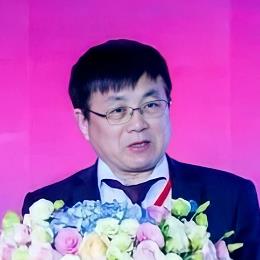
体验评价:“每年到了总评审的重要时刻,脑海中总会浮现出这样的画面,就像老电影里的镜头:村口有一颗老槐树,老槐树下有一口钟,钟声敲响,我们集合在这里……”这个系统不错,效率上提高了很多,体现了公平公正的评审原则!
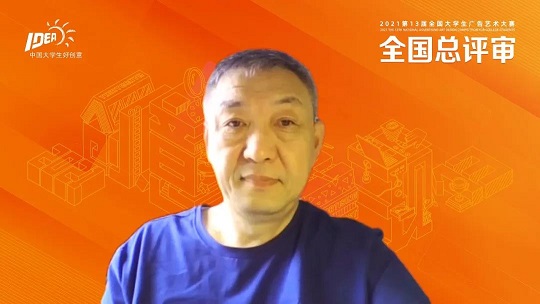
体验评价:评审软件使用简单,评审快捷,节约了评委的工作强度。系统操作容易入手,操作就动鼠标就好了。
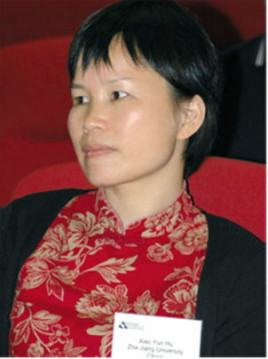
评审系统软件始终以满足顾客为己任, 成就评审系统第一品牌。
评审系统软件始终以满足顾客为己任,
成就评审系统第一品牌。
上海迅速网络营业执照
迅速评审系统软著
创优评审系统软著
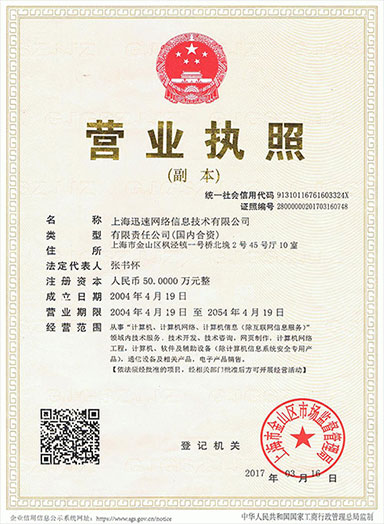
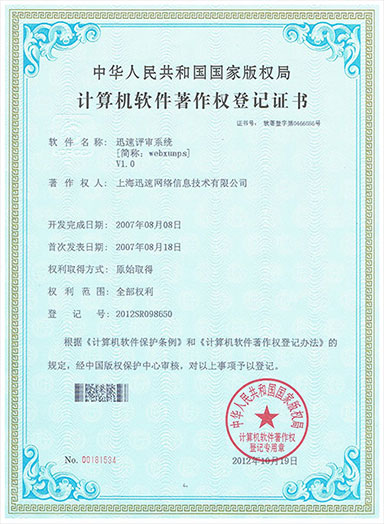
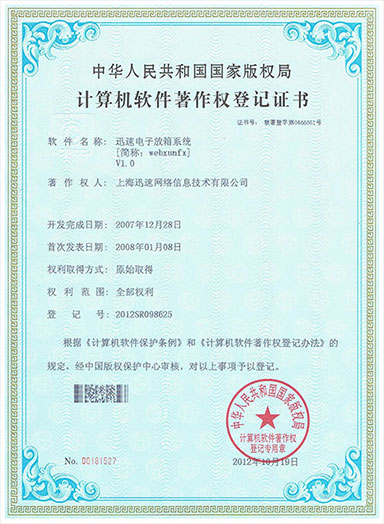

做网站推广时常用的几种基本方法做网站推广时常用的几种基本方法做网站推广时常用的几种基本方法做网站推广时常用的几种基本方法做网站推广时常用的几种基本方法做网站推广时常用的几种基本方法做网站推广时常用的几种基本方法
摘要: 截止日期:2021年4月15日||主办:江苏省翻译协会||第十三届“板桥杯”(Bambridge)青年翻译竞赛分笔译和口译两项子赛事。第十三届“板桥杯”(Bambridge)青年翻译竞赛通知截止日期:2021年4月15日“板桥杯”青年翻译竞赛自2008年至今已成功举办了十二届,对推动翻译理论与实践发展,激发翻译爱好者热情,发现和培养翻译人才发挥了积极作用。竞赛原文主要选取军事、外交、政治和国际关系等方面的文章,此项赛事由江苏省翻译协会负责主办,国防科技大学国际关系学院具体承办。比赛不收取任何参赛费用。 主办:江苏省翻译协会 承办:国防科技大学国际关系学院第十三届“板桥杯”(Bambridge)青年翻译竞赛分笔译和口译两项子赛事。具体参赛规则如下: 第一部分笔译比赛竞赛内容:军事、外交、政治和国际关系等方面的文章,形式为英译汉。笔译参赛原文:见下文。 参赛对象:1.军队院校在校青年学员或青年教员。2.江苏地区高校教师或学生。3.江苏地区热爱翻译的其他人员。4.年龄40周岁以下。 译文要求:1.参赛译文需用电脑A4纸宋体5号打印。译文正文内请勿书写译者姓名或透露任何有关译者的个人信息。2.参赛译文请将报名表作为封面,写清参赛者的姓名、性别、出生年月、工作(学习)单位、联系电话和地址。3.同时将译文电子稿发送至竞赛专用邮箱:guoqiong@nudt.edu.cn,主题以姓名+译文题名标注。4.参赛译文须独立完成,杜绝抄袭现象。一经发现,将取消参赛资格。 奖项设置:笔译比赛设特等奖四名,一等奖十二名,二等奖二十名,三等奖若干名。颁奖典礼:本届竞赛颁奖典礼将于2021年6月中旬(具体时间待通知)在国防科技大学国际关系学院教学楼军事外交模拟中心举行,地方人员的笔译获奖证书将通过邮寄方式发放,军队院校获奖人员将受邀参加颁奖典礼。 截止日期:2021年4月15日(参赛译文投递截止日期以寄出邮戳为准)。 投寄(挂号)地址:南京市雨花区板桥街道国际关系学院国际军事合作教研室郭琼(老师)收 邮编:210039(请在信封上注明:“参赛译文”字样,只接受邮局投递和EMS,其它形式的快递不予受理。) 联系人:郭琼老师:13814003496朱蓓老师:18502531586第二部分口译比赛 竞赛内容:本届口译竞赛形式为对话口译(中英交替传译),参赛对象以邀请赛方式进行。 参赛对象:1. 军队院校在校青年学员(年龄为40周岁以下)。2. 受邀参加的江苏地区高校青年学生(年龄为40周岁以下),以邀请函为准。 报名要求:1. 每所院校限报两名参赛选手,各院校负责组织本校的初选工作。2. 拟报名参赛的选手需要在截止日期前将参赛报名表寄回,写清参赛者的姓名、性别、出生年月、工作(学习)单位、联系电话和地址。 奖项设置:口译比赛设特等奖二名,一等奖四名,二等奖六名,三等奖若干名,并设优秀指导教师奖。 比赛时间及颁奖典礼:本届口译竞赛将于2021年6月中旬(具体时间待通知)颁奖典礼之前在国防科技大学国际关系学院教学楼军事外交模拟中心举行,比赛结束后当场颁奖。 报名截止日期:2021年4月15日(投递截止日期以寄出邮戳为准)。 投寄(挂号)地址:南京市雨花区板桥街道国际关系学院国际军事合作教研室 武媛媛(老师)收 邮编:210039 (请在信封上注明:“口译报名”字样,只接受邮局投递和EMS,其它形式的快递不予受理。) 联系人: 武媛媛老师:13382054161朱蓓老师:18502531586笔译竞赛原文 Counseling in the Operational Domain: A Vital Component to Platoon LeadershipKirby DennisLeader development is achieved through mutually supporting efforts across three domains — the institutional, operational, and individual. While it is generally agreed that no domain is more or less important than the others, performance and developmental counseling is most prominent in the operational domain — and it must remain so. More pointedly, I contend that developmental counseling in the operational domain is the most important and meaningful form of leader development. With this in mind, I offer the following advice to platoon leaders — a cohort that is critical to promoting a culture of counseling within our formations.Don’t Treat Counseling as a Negative InteractionOften times, we immediately think in negative terms when we hear the word "counseling." While an individual's past performance failures and weaknesses are certainly fair game for any professional discussion, the tone of counseling sessions should generally be positive and centered around future successes. With this in mind, an effective counseling technique is to speak to your audience about their areas of weakness through the lens of potential. The manner in how you communicate these deficiencies is critical though, and effective counselors must learn how to speak to areas of weakness in a way that motivates their audience to embrace the feedback and set out to make improvement. Easier said than done, right? Not really! If you are a company commander, you have insight on what makes a successful first sergeant, so use this as counseling material for your platoon sergeants — who are generally aspiring to serve at the next level. Similarly, as a platoon leader, you have firsthand knowledge on what makes a platoon sergeant effective in his duties, so provide this to your squad leaders during counseling sessions — who are generally trying to succeed and be future platoon sergeants themselves. To be sure, each counseling session will be tailored to a specific subordinate's performance and potential, and a variety of techniques will undoubtedly be employed. However, a leader's ability to link performance to potential and speak in terms that motivate are important skills that will enhance the counseling experience for all involved.Adopt a Training and Combat Mentality to CounselingAs a young platoon leader, I learned that in order to effectively maneuver my platoon during training and in combat, I had to clearly communicate to my squad leaders in both the planning and execution phases of an operation. As a battalion commander 16 years later, this remains the case — as my platoon leaders inherently understood the value of forging strong tactical relationships with their squad leaders. After all, the squad leader is charged with ensuring the success of the breach, support by fire, and assault — so clear communication and shared understanding is critically important. At the same time, however, many of my platoon leaders did not necessarily view their daily (or non-tactical) relationships through the same lens. In short, platoon leaders should view their "counseling relationship" with their squad leaders in the same manner as their "tactical relationship" — just without the radio. If this mindset is adopted, I believe that the tenets of mission command — clear communication, shared understanding, and mutual trust — can be realized in all environments.Consider Your Philosophy and Make Counseling a Battle-Rhythm EventMeetings, field training, and physical training (PT) dominate our outlook calendars, not to mention the dozens of other events that demand time and attention. If executed properly, you will likely get a calendar reminder for a counseling session at least once a week. Signore argues that counseling should be executed on payday activities, which is one technique to ensure counseling is executed through a deliberate battle-rhythm event. Regardless of the eventual schedule that is adopted, a platoon leader should ask a few questions regarding his counseling philosophy. Do I counsel team leaders in my platoon? If so, how often? How will my formal counseling sessions for squad leaders differ from my daily interactions so that it has the most meaning and impact? I could go on and on, but the simple point is that thought must be given to your counseling philosophy and “battle rhythm.” If one does the math, platoon leaders likely have 8 to 10 NCOs in their platoon to counsel on a monthly or quarterly basis. While effective counseling should not be defined by a specific length of time, I have personally found that it takes at least 90 to 120 minutes per counseling session to achieve a level of dialogue that is meaningful to both the counselor and the counseled. With these conservative estimates in mind, platoon leaders should plan to devote 9 to 12 hours each month in some form of counseling environment with their subordinate NCOs. If we devoted this much time to any other event in our professional lives, we would most assuredly plan and resource it properly. In the end, counseling is one of the most important things we do as professionals — just like live-fire exercises and PT.Ask Subordinates for Feedback on Your PerformanceGEN Colin Powell once said,"There are no secrets to success. It is the result of preparation, hard work, and learning from failure." As leaders and counselors, we should solicit subordinate feedback at times to become more effective, and as GEN Powell noted, learn from our own failures. Generally speaking, professional feedback is delivered through a top-down approach, but we shouldn't constrain the forms or sources of feedback we need to receive. At the end of a counseling session, I encourage leaders to solicit feedback from subordinates on their own performance — a simple technique that invests subordinates in the conversation and demonstrates a level of professional trust between the two parties. Moreover, asking subordinates to verbally communicate professional shortcomings to their superior is a herculean request-- but make no mistake, it is a form of development that the subordinate will benefit from. Professionally communicating areas of weakness underpins the learning culture that makes the Army profession so strong, which is most evident in the Army's after action review (AAR) process. Platoon leaders who have executed a Combat Training Center (CTC) rotation certainly understand this, as the AAR is the centerpiece to every unit's CTC experience. So if we rightfully take AARs so seriously as it pertains to organizational performance, shouldn't we do the same for our own personal performance?Counseling is the foundational event for professional development — and it must be delivered through a program that aims to not only identify weakness and deficiency but also pinpoint strengths and positive leader attributes. Effective counseling is a skill that requires practice and repetition, much like learning doctrine or improving physical fitness or public speaking. Indeed, an effective counselor can positively impact generations of Soldiers, and as such, is an aspect of our professional lives that demands our attention and energy.
整合不同评审业务,致力于评审数字化